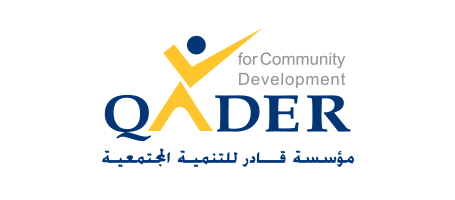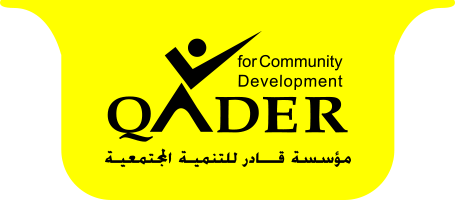QADER analysis Ministry of Social Development's budget from a disability development perspective

On Wednesday, February 13, 2019, QADER for Community Development held a workshop in Ramallah to present and discuss an analysis of the Ministry of Social Development's budget through the lens of disability-inclusive development. The event was attended by Deputy Minister of Social Development Mr. Daoud Al-Deek, representatives from the Union of Persons with Disabilities, the Palestinian Disability Coalition, various international and local organizations, and institutions supporting the rights of persons with disabilities.
Mrs. Lana Bandak, General Director of QADER, opened the workshop, welcoming attendees and emphasizing the significance of the analysis. The report aimed to assess the alignment of the Ministry’s budget for 2017–2018 and its Social Development Sector Strategy (2017–2022) with the National Policy Agenda (2017–2022).
In his remarks, Mr. Daoud Al-Deek highlighted the Ministry’s openness to institutional dialogue and its commitment to bridging gaps between planning and budgeting. He emphasized efforts to make the Ministry’s budgets more responsive to the rights and needs of marginalized groups, particularly persons with disabilities. He noted that budget analysis is an essential tool for education, review, and progress toward better-serving Palestinian society.
Researcher Moayyad Afaneh presented the report, detailing the Ministry’s budget structure, the methodology used, data collection sources, interviews, and analysis objectives. He addressed key questions, such as the allocation of funds for disability-related services and programs versus actual expenditures. The analysis also examined the alignment of these programs with the National Policy Agenda, Palestinian laws, and international conventions on disability rights. The presentation concluded with key findings, recommendations, and lessons learned.
Following the presentation, participants engaged in an in-depth discussion to provide feedback and qualitative insights to enhance the report before finalizing it. The next step will focus on advocating for the adoption of the report’s key findings and incorporating them into future general budgets, particularly provisions targeting persons with disabilities.
Several participants stressed the importance of adopting a developmental perspective in the analysis, linking it to the National Policy Agenda and the human rights framework enshrined in the UN Convention on the Rights of Persons with Disabilities and Palestinian Law No. 4 of 1999. They noted that this approach could significantly improve the situation of persons with disabilities at both national and regional levels.
In her closing remarks, Mrs. Lana Bandak thanked Deputy Minister Daoud Al-Deek for his participation, researcher Moayyad Afaneh for his thorough preparation, and the Swedish Individual Relief organization for supporting this critical initiative. She emphasized the importance of incorporating all feedback from the discussion into the final version of the budget analysis report.

